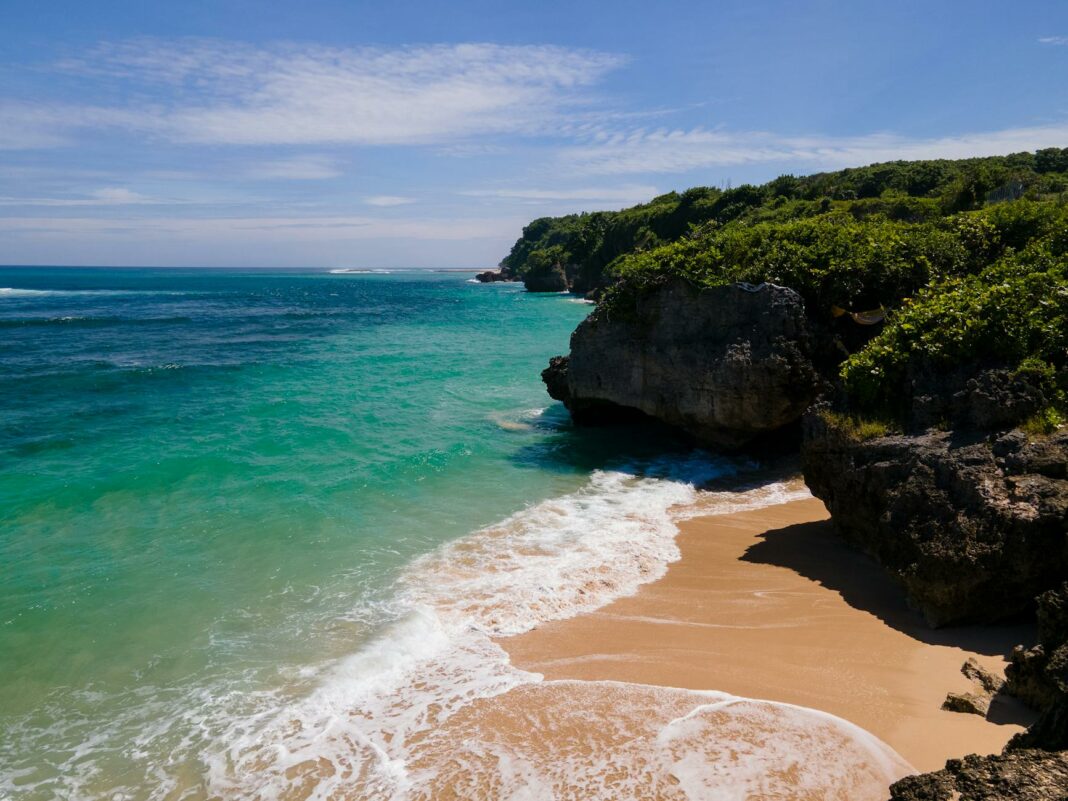Table of Contents
Introduction
Have you ever gazed upon the crystal-clear waters and stunning beaches of your favorite holiday destination, only to be confronted by the sight of unsightly litter strewn across the shore? It’s disheartening, isn’t it? Many of the world’s most beloved vacation spots are grappling with an overwhelming amount of coastal waste, posing a significant threat to their natural beauty and ecology. But fear not, while the situation seems dire, there is a silver lining—through awareness and dedicated action, we can protect these paradises and ensure they remain vibrant for future generations.
The journey towards cleaner coastlines is not merely about addressing waste; it’s about rejuvenating communities and industries that thrive on tourism. This blog post delves into the pressing issue of coastal waste and takes a positive approach, highlighting innovative solutions and inspiring ways to combat environmental degradation. By encouraging proactive engagement, we will explore how residents and travelers alike can contribute to preserving our precious destinations. Let’s dive in!
The Issue of Coastal Waste
Coastal waste is not just an eyesore; it has become a pervasive problem affecting ecosystems worldwide. Marine debris, consisting of plastics, metal, and other waste products, contaminates beautiful beaches and poses serious threats to wildlife. Marine animals often mistake plastic items for food, leading to tragic consequences for their species. Furthermore, the accumulation of debris can disrupt entire ecosystems, obliterating habitats that are essential for biodiversity. This dire scenario affects not only the flora and fauna but also local communities that depend on healthy coastlines for their livelihoods and culture.
Disturbingly, the issue comes into sharper focus during peak tourist seasons, when popular beaches become overwhelmed with litter. It’s perplexing to see that while individuals flock to these stunning locations for relaxation and wonder, their actions contribute directly to the problem. Awareness is crucial, as many travelers may not realize the profound impact of their waste. However, the good news is that there’s an increasing movement towards eco-conscious travel. Environmentalists, governments, and tourism boards are finally recognizing the vital need for implementing measures to address this growing concern.
The Impact on Tourism
Tourism plays a pivotal role in the global economy, and coastal destinations are often at the forefront of this industry. When beaches are clean and inviting, they draw visitors from all walks of life, fostering sustainable revenue and community development. Unfortunately, the presence of coastal waste negatively impacts the tourism industry, leading to declining visitor numbers and diminished revenue for local businesses. Potential tourists are becoming increasingly sensitive to environmental issues and often seek out sustainable travel options. Therefore, when coastal areas suffer from litter, it not only tarnishes their image but directly affects their economic stability.
<pMoreover, tourism-related industries, such as fishing and recreation, are also dramatically affected by marine debris. A dirty beach deters not only tourists but can also taint the reputations of resorts and recreational activities. Local economies depend heavily on natural beauty, and the unfortunate reality is that the more polluted a coastline becomes, the less desirable it becomes for visitors. This can create a vicious cycle, where decreased tourism leads to diminished funding for cleanup efforts and conservation initiatives. Recognizing this impact is crucial, as it empowers travelers to make informed choices about their travel, pushing for sustainable tourism practices that honor the beauty of natural destinations.
Solutions and Innovations
The silver lining in the face of coastal waste challenges is the myriad of innovative solutions sprouting up globally. From community beach cleanups to advanced technology that collects debris from our oceans, the enthusiasm for protecting coastal environments is palpable. Various organizations have initiated campaigns aimed at educating the public about the importance of maintaining clean beaches. For example, local governments are increasingly adopting stricter waste management policies and encouraging recycling and responsible waste disposal methods.
<pThe advent of technology also plays a role in addressing this crisis. Drones are now being used to monitor littered beaches, gathering data that can help direct cleanup efforts more effectively. Moreover, there are creative solutions involving repurposing beach waste into art or useful items, transforming a negative into a positive by inspiring others to get involved. Many resorts are implementing eco-friendly practices, utilizing biodegradable materials and reducing their carbon footprints. As individuals become aware of their consumer power, the transition to sustainable habits is gaining traction, emphasizing that every small action counts when it comes to protecting our beloved destinations.
Join the Movement
Your involvement matters more than you might realize. Awareness is the first step in making sustainable changes and supporting efforts to reduce coastal waste. When planning your next trip, prioritize destinations that uphold environmental values, and actively participate in beach cleanups or local conservation projects. Each time you visit these beautiful locations, remind yourself of the responsibility we share to protect and cherish them.
<pAdditionally, consider spreading the message through social media or conversations with friends and family. By sharing your passion for sustainable travel, you foster a ripple effect that could galvanize others to think critically about their impact on stunning coastlines. The more we advocate for a cleaner planet, the more we inspire collective action, ultimately ensuring that our favorite holiday destinations thrive in their natural glory for generations to come.
Frequently Asked Questions
What are the main causes of coastal waste? Coastal waste primarily stems from improper waste disposal, littering by beachgoers, and industrial runoff. As populations grow and tourism increases, the pressure on coastal environments intensifies.
How can travelers contribute to reducing coastal waste? Travelers can help by participating in local cleanups, advocating for sustainable practices in accommodations, and ensuring that they properly dispose of waste during their visits.
What role does technology play in cleaning coastlines? Technology is increasingly being harnessed through innovations such as drones for monitoring litter, apps for reporting debris, and even specialized vessels designed to collect marine waste.
Are there organizations focused on combating coastal waste? Yes, numerous organizations worldwide are dedicated to addressing coastal waste through educational programs, cleanup efforts, and advocacy, aiming for a more sustainable future for our oceans.
A Brighter Future for Our Holiday Destinations
Looking ahead, there is hope for our favorite holiday destinations as individuals, communities, and organizations unite to tackle the crises caused by coastal waste. The movement toward sustainable tourism is gaining momentum, highlighting that each of us holds the potential to make impactful changes. Embracing a collective responsibility, we can foster lush, vibrant coastlines for future generations to enjoy. Now is the time to act, showing love for the places we cherish while protecting the earth we call home.
Image Credit: Pexels





